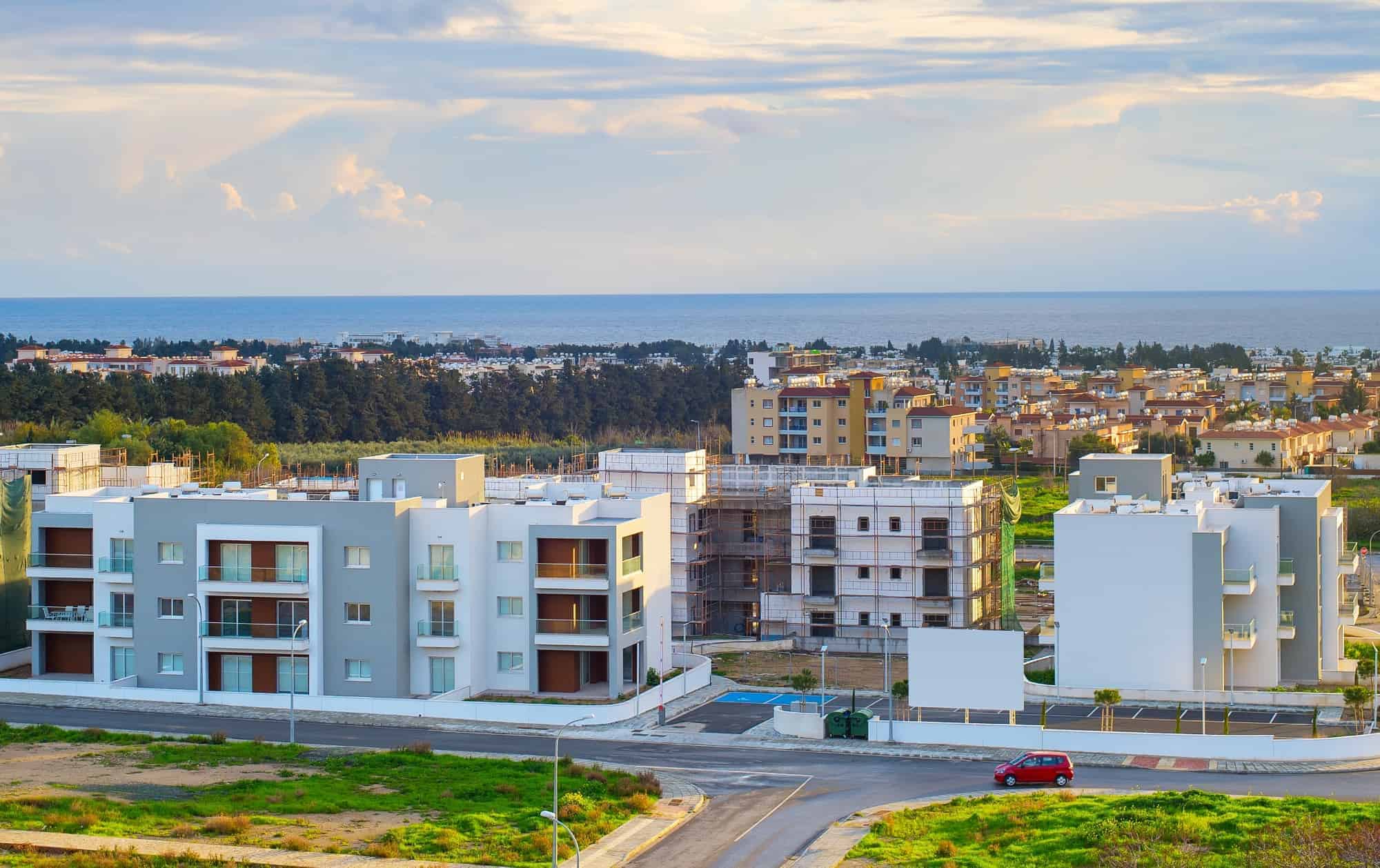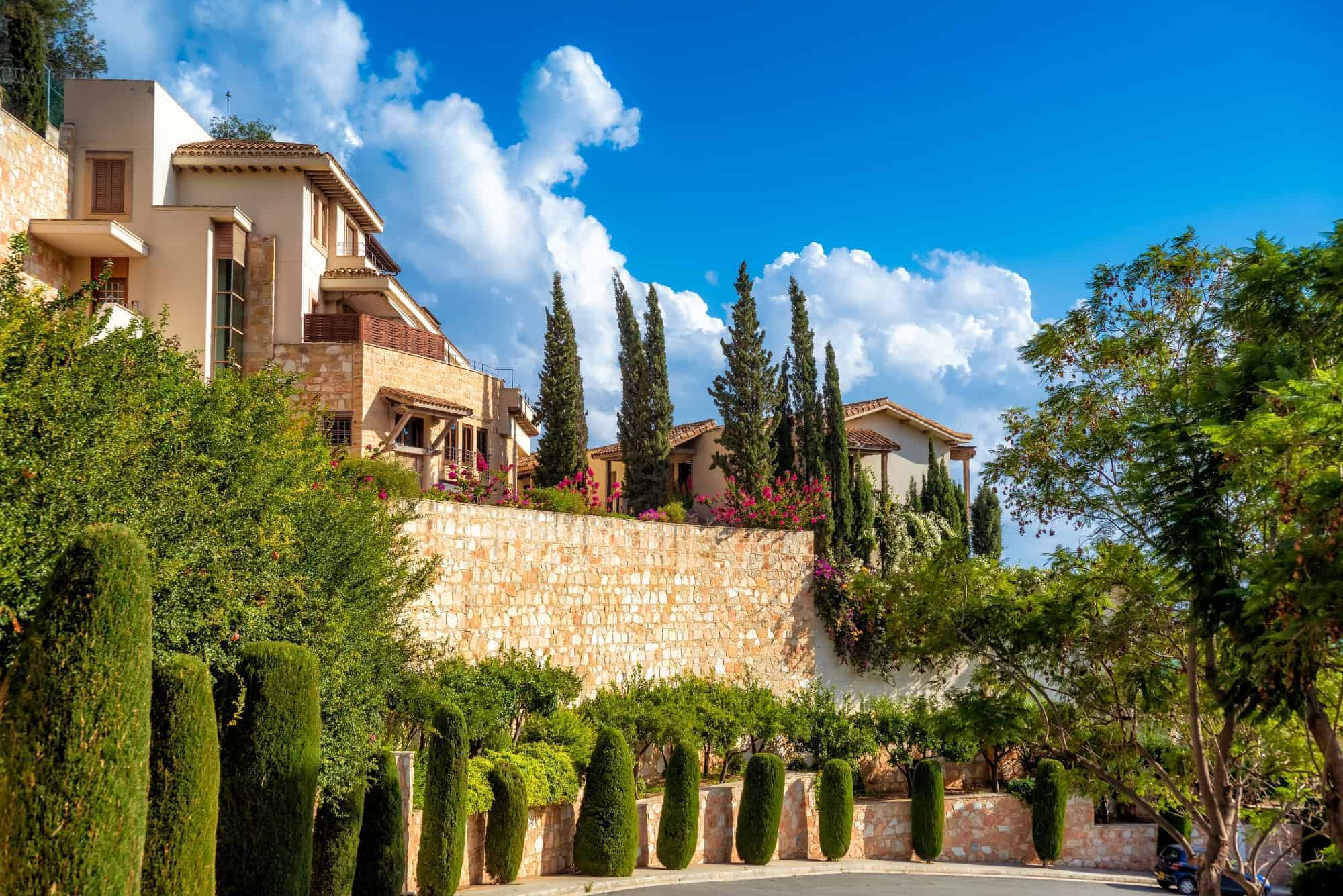Owning your own home in the sun is a dream for many, and Cyprus is a perfect location to make this dream come true. However, buying a property in Cyprus requires research and preparation.
Our guide on a property purchase in Cyprus will help you understand the process and what you can do to avoid possible problems.
In this guide:
- Foreign property ownership in Cyprus: rules for non-EU citizens
- Due diligence: how to avoid mistakes.
- The legal process: the steps.
- The costs: legal fees and taxes
Secure Peace of Mind with Best-Value International Health Coverage
International Citizens Insurance provide free, no-obligation quotes from the leading international health insurance providers with plans tailored to meet your needs. Trusted by thousands of expats worldwide.
Buying a property in South Cyprus
South Cyprus is in the EU, more robust economically, more expensive than its northern neighbor, and more popular with the international community as it provides opportunities for doing business with the EU.

Can foreigners buy a property in South Cyprus?
Foreign nationals can purchase property in southern Cyprus without any restrictions; however, you must apply to the Council of Ministers for permission to purchase a property.
As a rule, most applications get approved, but the paperwork can take a long time. You can sign a sales contract and even register it with the Land Registry Office, but your title deeds won't be granted until you get your Council of Ministers permission.
To be safe, you might want to have a clause in your sale contract protecting your interests in case you are refused permission to buy, which is very unlikely.
Buying a property in Cyprus as a non-EU citizen
Non-EU citizens can buy property in Cyprus, but it does not necessarily automatically qualify you to live in Cyprus on a permanent basis.
There are certain restrictions regarding the size of the plot of land you want to buy and how long you can stay in your Cyprus home without officially becoming a resident.
You can stay in any of the EU member states for three months out of every six months without a visa. If you want to stay longer, you will have to apply for permission to do so.
As to the size, your plot of land shouldn’t exceed 4,014 sq m.
Getting a mortgage can also be a bit trickier, so it's advisable to use a reputable international broker.
Is it safe to buy property in Cyprus?
It’s safe if you do your due diligence and understand the process. Here’s a list of precautions to take to avoid pitfalls when buying a house in Cyprus:
- Always make sure the land is not mortgaged;
- Use an agency with a good reputation;
- Have a look at any properties already finished by a developer if buying off-plan to ensure you know what standards you can expect;
- Make sure you understand how your property will be maintained;
- Check that your lawyer is independent and not in some way related to the developer/vendor or estate agent.
Do I need a lawyer when buying a property in Cyprus?
It is highly recommended to employ a lawyer experienced in dealing with all the complexities of paperwork and, most importantly, tracking down the property’s title deed before proceeding to buy.
Very often, developers take out mortgages on land or property. If you sign a contract with such a developer and they go bankrupt, you will likely become liable for that mortgage. This has affected many buyers in southern Cyprus and is a very traumatic experience for those affected.
Have your lawyer conduct checks for mortgages placed on the land. Remember that if you sign a contract for a property in Cyprus with any financial claim or a mortgage on it, you will not obtain the deeds in your name until the mortgage is paid off, so tread very carefully indeed.
Make sure your lawyer does not represent the selling side (private vendor or developer) as well because this can be common practice and is very dangerous in terms of ensuring your best interests are looked after.
If you are buying a property in Cyprus that needs renovation, check access to utilities and services and ensure that you can develop/improve the property according to local planning laws.

The legal process when purchasing a property
When you find the property you wish to buy, make an offer to the current owner through your agent.
If both sides are happy to proceed, a formal contract of sale is written and translated into all the languages necessary. It should then be deposited with the relevant District Lands Office within two months of being signed by both parties.
The buyer usually puts down a deposit of about 10% of the sale price.
The title deed can only legally be transferred, however, once the government has given the appropriate permissions and the imported funds have been certified. The estate agent or lawyer will then register the property in the name of its new owner.
How much does it cost to buy a house in Cyprus?
You should allow for at least an extra 15% on top of the buying price to pay for transfer fees, stamp duties, and legal fees. The vendor usually pays the agent’s fees.
Transfer fees depend on a property’s value and range from 3% to 8%.
Stamp duty is also determined by a property’s price. It can vary from 0.15% to 0.20% but shouldn’t exceed 20,000 EUR.
The reduced VAT rate
In Cyprus, new properties are generally subject to a 19% VAT rate. Yet, if you meet these criteria, a 5% VAT rate can apply when buying your primary residence:
- You must be at least 18 years old.
- The property must be your primary and permanent residence for the next ten years.
- You haven't previously used the reduced VAT rate.
- The reduced rate applies only to the first 200 sqm; the standard rate applies to the rest.
You might find useful:
- Living In Cyprus – The Expats’ Guide: take a look at both the North and South of Cyprus to decide whether the island is the right place for you
- Best Places To Live In The Republic Of Cyprus – most popular expat locations in South Cyprus
- The Expat Guide to UK Pensions Abroad – detailed information about your state, workplace, and private pensions when you retire abroad; your options, tax implications, and opportunities if you transfer your pension pot abroad or leave it in the UK
- Didn’t find what you were looking for or need further advice? Comment with your question below, and we will do our best to help.
Secure Peace of Mind with Best-Value International Health Coverage
International Citizens Insurance provide free, no-obligation quotes from the leading international health insurance providers with plans tailored to meet your needs. Trusted by thousands of expats worldwide.




